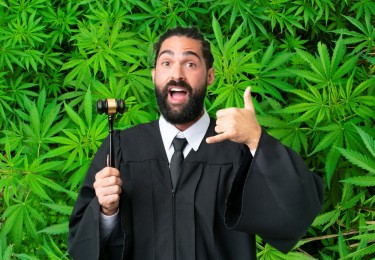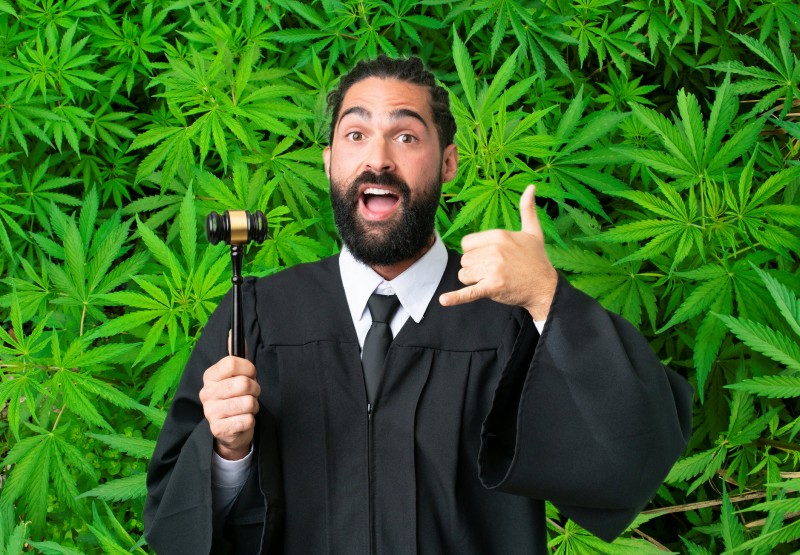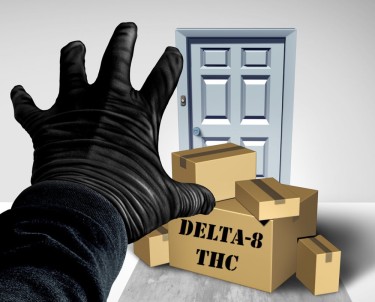
A recent ruling by a federal judge has raised questions within the industry: Has this judge effectively legalized hemp-derived cannabinoids such as HHC, Delta-8 THC, THCa, and THCP flower? In summary, the judge in Arkansas determined that the 2018 Farm Bill holds greater legal authority than a state ban on hemp-derived cannabinoids, potentially setting a precedent for future legal actions in other states.
The U.S. District Judge Billy Roy Wilson, on Thursday, issued a ruling to halt the enforcement of Act 629 of 2023, a law enacted during the 2023 legislative session in Arkansas, which prohibited the sale and production of products containing delta-9, delta-8, and delta-10 THC within the state. The judge deemed the ban on hemp products to be inconsistent and arbitrary.
Act 629 received approval during the 2023 regular session of the state's General Assembly. This legalization prohibits the production and sale of products containing delta-8, delta-9, delta-10, and other THC isomers derived from hemp. Earlier this year, Arkansas Governor Sarah Huckabee Sanders signed Act 629 into law, effectively banning the sale of "insufficiently regulated hemp-derived products."
Hemp sellers in the state are currently rejoicing over this development, considering it a victory. According to renowned attorney Rod Knight, this could have far-reaching implications for hemp-related laws across Arkansas and other states.
Four Individuals in Arkansas Filed a Lawsuit.
Earlier this month, four companies filed a lawsuit: Sky Marketing Corp, The Cigarette Store LLC, Drippers Vape Shop LLC, and Bio Gen LLC. These businesses operate at various points along the hemp industry chain, encompassing a manufacturer, wholesaler, distributor, and retailer.
The lawsuit lists several defendants, including Gov. Huckabee Sanders, Attorney General Tim Griffin, the Department of Finance and Administration, the Tobacco Control Board, the Department of Agriculture, the State Plant Board, and the prosecuting attorneys of Arkansas' 28 judicial circuits.
The legal representatives for these companies have contended that the law in question is unconstitutionally vague and overridden by the 2018 Farm Bill. It appears that their argument is substantiated.
According to a report from the Northwest Arkansas Democrat-Gazette, the complaint states, "Plaintiffs have been, and will be, adversely affected by Act 629 as they are unable to transport hemp-derived cannabinoid products within and through Arkansas, even though these products have been declared legal under federal law."
Senate Bill 358, which later became Act 629 upon approval and enactment on April 11, criminalized all hemp-derived products created through a synthetic chemical process and any other psychoactive substances derived from them.
Nonetheless, the plaintiffs assert that the 2018 Farm Bill supersedes the Act and argue that its provisions are unconstitutionally unclear, making them null and void. The Court agreed with this stance and issued an injunction to halt the Act's implementation.
Abtin Mehdizadegan, an attorney representing the plaintiffs, noted that his clients attempted to resolve the issue through non-legal means before the ban was officially signed into law.
According to Mehdizadegan, in their lawsuit, they requested that the Federal Court in the Eastern District of Arkansas issue an injunction against Act 629. This is due to the belief that the Act unconstitutionally restricted the definition of hemp-derived products, which violates the 2018 Farm Bill and improperly constrained the transportation and shipping of these products. Before the bill became law, we engaged in extensive discussions with the defendants during the 2023 legislative session as the bill progressed through the legislative process.
Preempted by the 2018 Farm Bill
In its ruling, the Court reached three specific conclusions: firstly, it determined that the Act is preempted by federal law due to the principle of "conflict preemption." Secondly, it found that the Act is preempted by federal law under the principle of "express preemption." And thirdly, it declared that the Act is unconstitutionally vague and, therefore, null and void.
Attorney Rod Knight elucidated that the Court's first two findings are grounded in the legal doctrine of preemption. As the Court articulated, "the federal preemption doctrine originates from the Constitution's Supremacy Clause, which asserts that laws of the United States created by the Constitution hold superior authority. State laws that hinder or contradict congressional laws established under the Constitution are deemed invalid or subject to preemption."
In this case, the Court identified two relevant forms of preemption: "conflict preemption" and "express preemption." Although these concepts yield similar outcomes, they are grounded in distinct legal foundations. However, the Court's third determination stems from a separate legal doctrine known as "void for vagueness," as established under the due process clause of the Constitution.
In May of last year, Arkansas, joining the ranks of states with legalized cannabis industries, either regulated or prohibited the sale of intoxicating hemp-derived products. These products have been available for purchase since the 2018 Farm Bill, which legalized hemp production nationwide. Arkansas incorporated this federal legislation into its legal framework by adopting the Industrial Hemp Act 565.
According to the local news outlet KTHV, the trial for this case is scheduled to commence on August 27, 2024.
Conclusion
The recent ruling by U.S. District Judge Billy Roy Wilson in Arkansas has sent ripples through the hemp industry, sparking discussions about the legality of hemp-derived cannabinoids such as HHC, delta-8 THC, THCa, and THCP flower. Judge Wilson's decision to halt the enforcement of Act 629 of 2023, a state law banning certain hemp products, has raised questions about the supremacy of federal law over state regulations.
This ruling, rooted in the principles of "conflict preemption" and "express preemption," highlights the authority of the 2018 Farm Bill in governing hemp-related matters. By finding Act 629 inconsistent with federal law and declaring it unconstitutionally vague, the Court has set a precedent that could influence similar legal actions in other states.
The lawsuit brought forward by hemp industry businesses underscores the importance of legal clarity and the need to align state regulations with federal legislation. As the trial for this case approaches in 2024 and with the prospect of potential revisions to the Farm Bill, the future of hemp-derived cannabinoids remains uncertain, and the industry will be closely watching for further developments.







